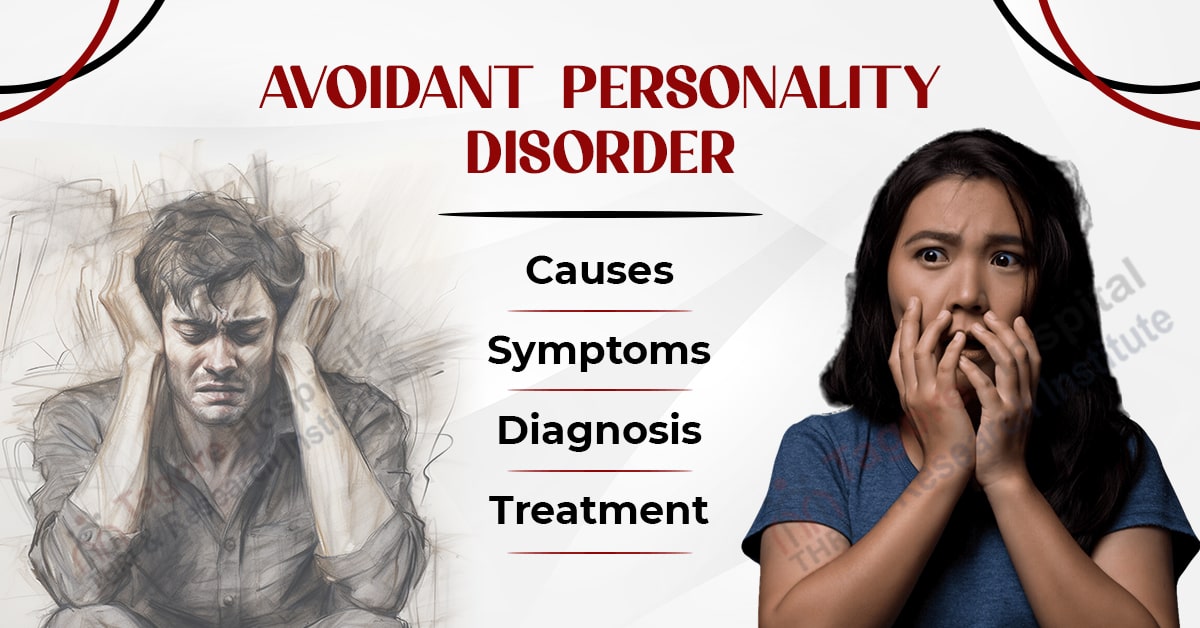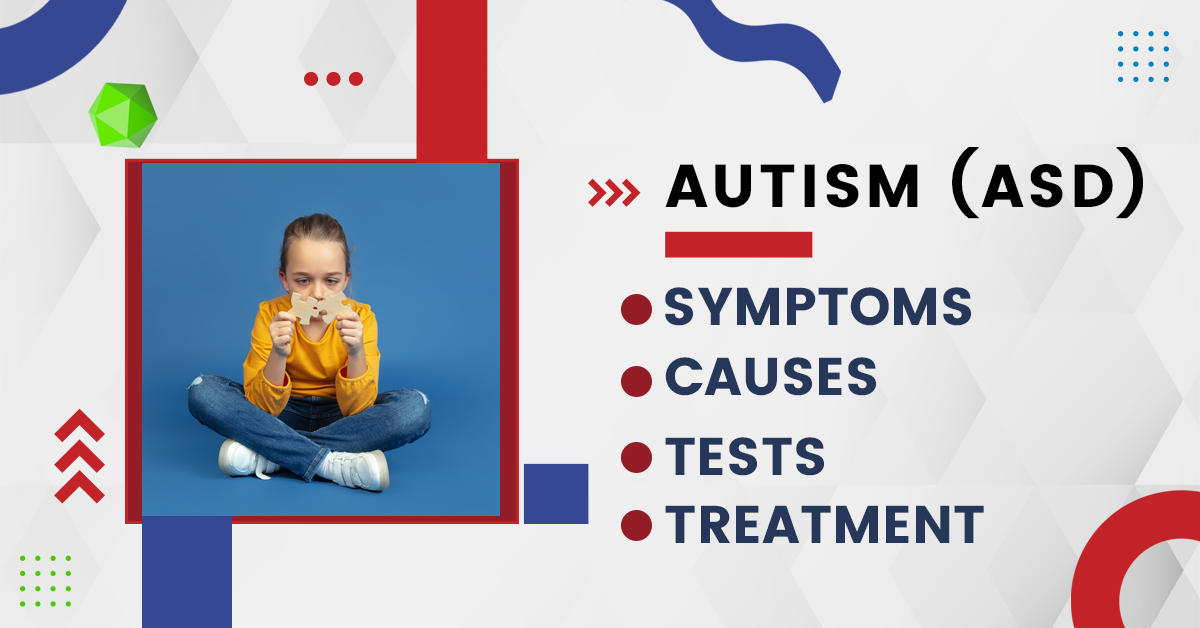- By Tagore Admin
- Posted December 14, 2023
Low self-esteem and a severe fear of rejection are characteristics of avoidant personality disorder. Social situations are avoided by those who have the illness to prevent these emotions. Treatment for avoidant personality disorder involves psychotherapy, also known as talk therapy. Medications might also be helpful.
What is Avoidant Personality Disorder?
A mental health illness known as avoidant personality disorder (AvPD) is characterized by persistent feelings of inadequacy and an intense sensitivity to criticism. Despite their strong fear of being rejected, people with AvPD tend to shy away from social situations even though they would like to engage with others.
AVPD belongs to a category of disorders known as "Cluster C" personality disorders. Fear and anxiety are involved. Persistent behavioral patterns that deviate from societal norms—the way we're supposed to behave—are indicative of personality disorders.
Personality disorders are persistent behavioral tendencies that originate in childhood or adolescence and are out of line with cultural standards, or how we are expected to act. They emerge in childhood or adolescence and cause distress for the individual with the disease as well as others around them. They upset the affected individual and/or people in their vicinity.
Symptoms of Avoidant Personality Disorder
Symptoms of Avoidant Personality Disorder (AvPD) include feelings of inadequacy, a persistent pattern of social inhibition, and hypersensitivity to criticism. Some key symptoms of Avoidant Personality Disorder include:
● Avoidance of Social Interactions: Individuals with AvPD often avoid social situations due to fear of criticism, rejection, or disapproval. This can lead to significant social isolation.
● Fear of Negative Evaluation: There is a constant fear of being judged, criticized, or rejected by others. This fear can be so intense that it hinders the person's ability to engage in normal social activities.
● Low Self-Esteem: People with AvPD tend to have low self-esteem and a deep-seated belief that they are socially inept or inferior to others.
● Reluctance to Take Risks: Avoidance of new activities or taking risks, both in social and professional settings, is common in individuals with AVPD. They may be unwilling to engage in activities that involve interpersonal contact or fear embarrassment.
● Difficulty Forming Intimate Relationships: Establishing and maintaining close relationships can be challenging due to the fear of rejection or criticism. This may result in limited social support networks.
● Sensitivity to Rejection: Even perceived or imagined rejection can lead to intense feelings of distress and anxiety in individuals with AVPD.
● Preoccupation with Rejection: There is often a preoccupation with being rejected, and this fear can dominate thoughts and impact daily functioning.
You Can Read Also:- Acidosis: Types, Causes, Symptoms, Treatment And Prevention
Causes of Avoidant Personality Disorder
The exact causes of Avoidant Personality Disorder (AvPD) are not fully understood, but a combination of genetic, biological, and environmental factors may contribute to its development. In short, potential causes include:
● Genetic Factors: There may be a genetic predisposition to AvPD, as individuals with a family history of personality disorders or anxiety disorders may be at a higher risk.
● Biological Factors: Abnormalities or imbalances in brain chemistry, particularly neurotransmitters associated with mood and anxiety, may play a role in the development of AvPD.
● Childhood Experiences: Traumatic or adverse childhood experiences, such as rejection, bullying, or emotional neglect, may contribute to the development of AvPD. Early social learning experiences can shape an individual's social behaviors and perceptions.
● Temperamental Factors: A shy or inhibited temperament in childhood may be linked to the later development of avoidant traits. Children who are naturally more sensitive or anxious may be at a higher risk.
● Social and Environmental Factors: Growing up in an environment that emphasizes criticism, rejection, or lacks social support can contribute to the development of AvPD. Negative social experiences may reinforce avoidant behaviors.
Risk of Avoidant Personality Disorder
The risk factors associated with Avoidant Personality Disorder (AvPD) include:
● Genetic Predisposition: A family history of personality disorders or anxiety disorders may increase the risk of developing AvPD.
● Biological Factors: Imbalances in brain chemistry and neurotransmitter functioning may contribute to the risk of AvPD.
● Childhood Experiences: Traumatic or adverse experiences during childhood, such as rejection, bullying, or emotional neglect, can elevate the risk.
● Temperamental Factors: A naturally shy or inhibited temperament in childhood may be linked to a higher risk of developing AvPD.
● Social and Environmental Factors: Growing up in an environment that emphasizes criticism, rejection, or lacks social support can contribute to the risk of AvPD.
You Can read also:- Aarskog Syndrome: Symptoms, Causes, Diagnosis, Treatment and Prevention
Diagnosis of Avoidant Personality Disorder
The diagnosis of Avoidant Personality Disorder (AvPD) is typically made by mental health professionals, such as psychiatrists or psychologists. The procedure entails a thorough evaluation that comprises:
1. Clinical Interview: A detailed interview with the individual to gather information about their thoughts, feelings, behaviors, and social interactions. The clinician may inquire about the person's interpersonal relationships, fears, and avoidance behaviors.
2. Diagnostic Criteria: The mental health professional will use the Diagnostic and Statistical Manual of Mental Disorders (DSM-5) criteria to determine if the individual meets the specific criteria for AvPD. The DSM-5 is a widely used manual for diagnosing mental health disorders.
3. Observation and Behavioral Assessment: The clinician may observe the individual's behavior in various social situations to better understand their interpersonal functioning and the extent of avoidance behaviors.
4. Psychological Testing: Standardized psychological tests and assessments may be administered to gather additional information about the individual's personality, emotional functioning, and cognitive processes.
5. Rule Out Other Conditions: It's important to rule out other mental health conditions that may have similar symptoms, such as social anxiety disorder or other personality disorders.
Diagnosing a personality disorder, including AvPD, requires a thorough and careful evaluation by a qualified mental health professional. It's also important to note that self-diagnosis is not sufficient, as personality disorders involve complex patterns of thoughts, emotions, and behaviors that require professional expertise for accurate assessment.
Once diagnosed, treatment options such as psychotherapy (talk therapy), cognitive-behavioral therapy (CBT), and, in some cases, medication may be recommended to help individuals manage and improve their symptoms. Early intervention and a supportive therapeutic relationship can be crucial in addressing the challenges associated with Avoidant Personality Disorder.
Prevention of Avoidant Personality Disorder
Preventing Avoidant Personality Disorder (AvPD) involves addressing risk factors and promoting healthy social and emotional development. In short, prevention strategies may include:
● Early Intervention: Identify and address signs of anxiety or social difficulties in children early on. Provide support and intervention to help them develop healthy social skills.
● Promote Positive Parenting: Encourage positive and supportive parenting practices to create a nurturing environment. Minimize criticism and rejection, and foster a secure attachment between parents and children.
● Educate on Social Skills: Teach and encourage the development of effective social skills, communication, and assertiveness from an early age to help individuals navigate social interactions.
● Provide Mental Health Education: Increase awareness of mental health issues in schools and communities, promoting understanding and reducing stigma. When someone needs assistance, this may motivate them to ask for it.
● Counseling and Support: Offer counseling and support services in schools and communities to provide individuals with a safe space to discuss and address social and emotional challenges.
Treatment of Avoidant Personality Disorder
The treatment of Avoidant Personality Disorder (AvPD) typically involves psychotherapy (talk therapy) as the primary approach. While there is no specific medication approved solely for AvPD, medications may be prescribed to alleviate specific symptoms, such as depression or anxiety, if present. Here are the key components of the treatment for Avoidant Personality Disorder:
1. Psychotherapy (Talk Therapy):
● Cognitive-behavioral therapy (CBT): Focuses on identifying and changing negative thought patterns and behaviors associated with avoidance. It helps individuals develop more realistic and positive beliefs about themselves and their interactions with others.
● Exposure Therapy: Gradual and controlled exposure to feared social situations to reduce anxiety and avoidance behaviors.
● Social Skills Training: Teaches individuals specific skills to improve social interactions, communication, and assertiveness.
2. Medication:
● Antidepressants: Medications such as selective serotonin reuptake inhibitors (SSRIs) or other antidepressants may be prescribed to alleviate symptoms of anxiety or depression that often co-occur with AvPD.
3. Group Therapy: Participation in group therapy provides individuals with the opportunity to practice social skills, receive feedback, and gain support from others facing similar challenges.
4. Supportive Therapeutic Relationship: A strong therapeutic alliance between the individual and the mental health professional is crucial. Building trust and providing a safe, non-judgmental space are essential treatment components.
5. Self-Help and Support Groups: Encouraging participation in self-help or support groups can provide individuals with AvPD a sense of community, understanding, and shared experiences.
6. Mindfulness and Relaxation Techniques: Mindfulness meditation and relaxation exercises can help manage anxiety and improve overall emotional well-being.
Tags




